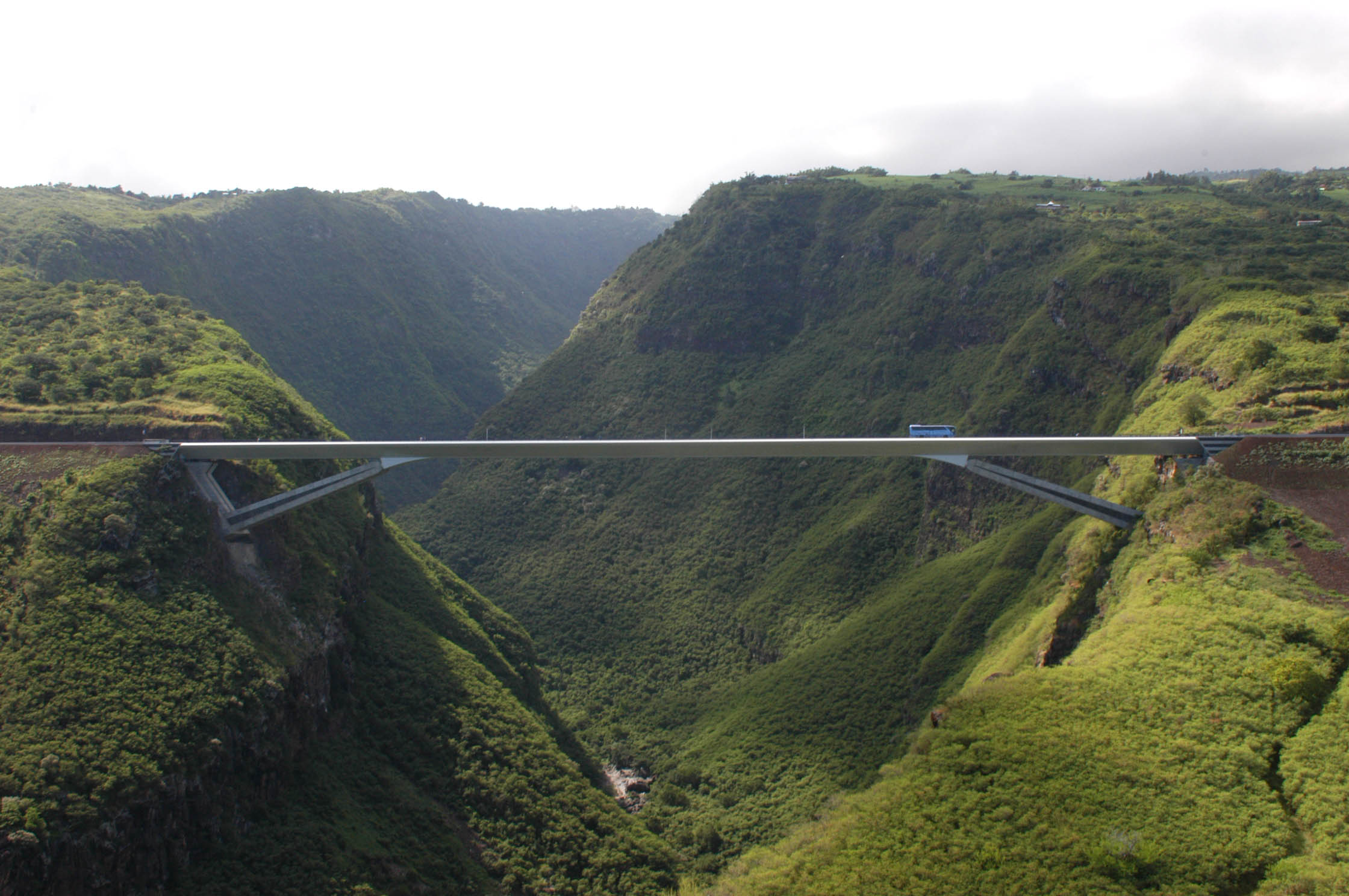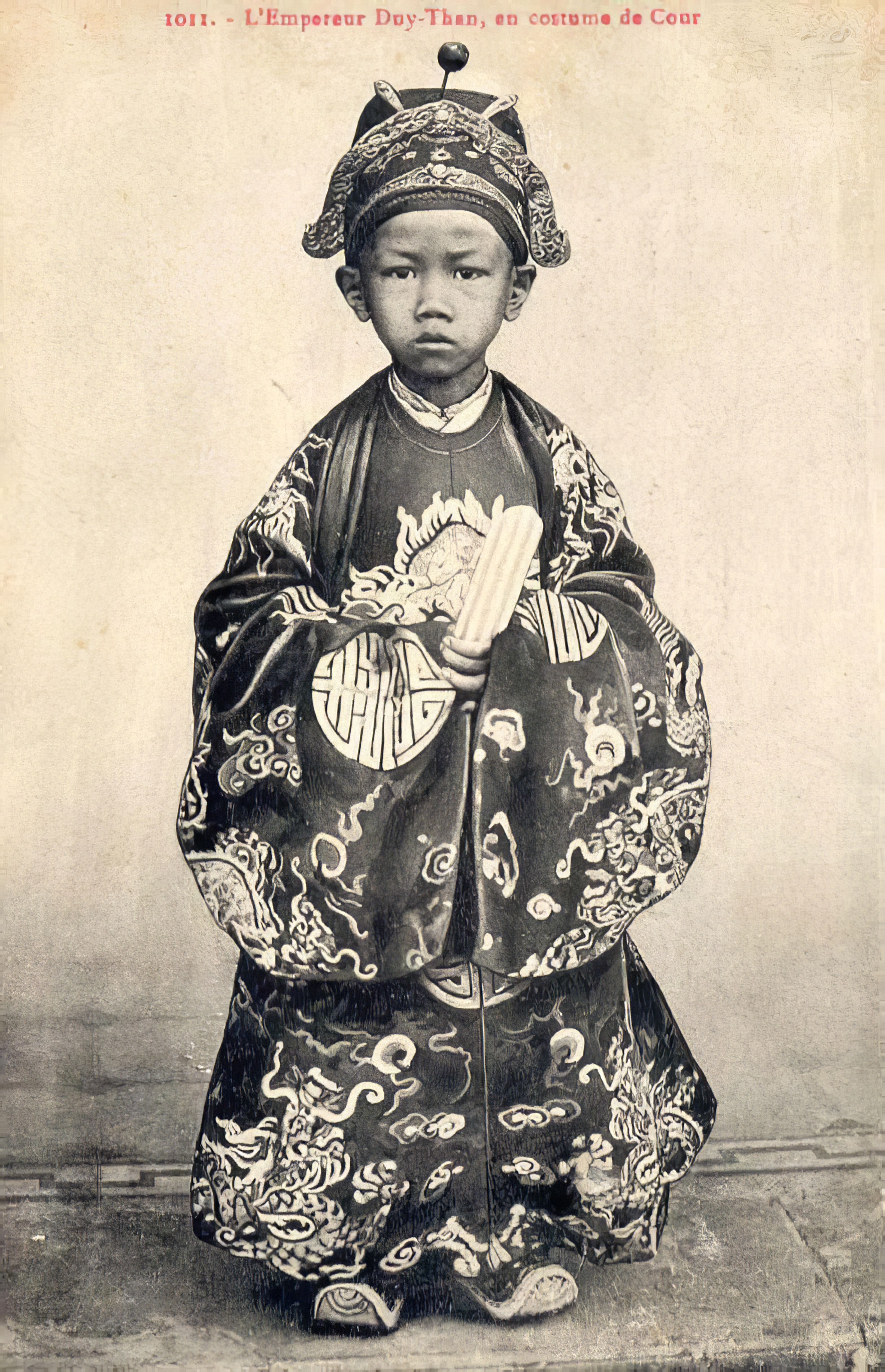Here are some facts about Reunion which you might not know:
- With a drop of 725m Reunion's Trou de Fer is the world's 21st highest waterfall.
- In 1841, Edmond Albius, a 12-year-old slave who lived on Réunion, discovered vanilla could be hand-pollinated (hand-pollination allowed global cultivation of vanilla).
- With a drop of 725m Reunion's Trou de Fer is the world's 21st highest waterfall.
 |
| Trou de Fer waterfall (source) |
- In 1841, Edmond Albius, a 12-year-old slave who lived on Réunion, discovered vanilla could be hand-pollinated (hand-pollination allowed global cultivation of vanilla).
 |
| Edmond Albius in 1863, aged 34 (image Wikipedia) |
- Reunion has the world records for the most amount of rainfall for the following periods:
- 9 hours: 1.087 metres (Belouve, 1964)
- 12 hours: 1.144 metres (Foc-Foc, 1966)
- 18.5 hours: 1.689 metres (Belouve, 1964)
- 24 hours: 1.825 metres (Foc-Foc, 1966)
- 2 days: 2.467 metres (Aurère, 1958)
- 3 days: 3.93 metres*
- 4 days: 4.87 metres*
- 5 days: 4.98 metres*
- 6 days: 5.07 metres*
- 7 days: 5.40 metres*
- 8 days: 5.51 metres*
- 9 days: 5.51 metres*
- 10 days: 5.61 metres
- 11 days: 6.299 metres
- 12 days: 6.401 metres
- 13 days: 6.422 metres
- 14 days: 6.432 metres
- 15 days: 6.433 metres
* Figures recorded at Commerson Crater during Cyclone Gamede in February 2007, one of the wettest tropical cyclones on record. The records for 10 to 15 days were also recorded there in January 1980.
While not world records, here are the local precipitation records for shorter periods of time:
Sources : Australian Govt. Bureau of Meteorology, Météo France and Dr Jeff Master's blog on Weather underground.
While not world records, here are the local precipitation records for shorter periods of time:
- 1 hour: 261mm (Cilaos, 1964)
- 3 hours: 422mm (Mare à Vieille Place, Salazie, 1998)
- 6 hours: 687mm (Mare à Vieille Place, Salazie, 1998)
Sources : Australian Govt. Bureau of Meteorology, Météo France and Dr Jeff Master's blog on Weather underground.
 |
| cyclone Gamede |
- On 24th March 1613, the English ship "The Pearl" stopped at the island and the ship's captain Samuel Castleton called the island England’s Forest, as he found the island to be particularly woody (although according to some accounts it was a pirate known as Blackwelle and not Castleton).
- Reunion is Europe's leading producer of sugar, and the world's 7th (see here).
- Reunion is Europe's leading producer of sugar, and the world's 7th (see here).
 |
| Grande Ravine Bridge, Trois Bassins (photo highestbridges.com) |
- Reunion was the first place in the world to use the Euro.
- In 2003, a female fishing world record was achieved in the waters off Reunion, when Catherine Lavit caught a blue marlin weighing 551kg.
- Until Mayotte became a French department in March 2011, Reunion had France's oldest mosque, the Noor-E-Islam mosque in Saint Denis, built in 1905. The oldest mosque in mainland France (La Grande Mosquée de Paris) was only built 20 years later.
- Reunion is often said to have the world's most expensive road to build and maintain, although this is probably no longer the case today. Built as a two-lane road in 1963 and widened to a dual carriageway in 1976, the Route du Littoral covers 13 km between Saint Denis and La Possession. At the time it cost 320 million French francs (over €48 million) to build. The cliff overhanging it often crumbles, resulting in frequent rockfalls which have killed more than twenty people over the past 30 years. Millions of euros still have to be spent trying to make it secure. In 2004 for example, the authorities spent €83.7 million (€64.5 million on metal safety nets, and €4.49 million on gabions). After the rockfall which happened on March 24th 2006 in which 4 people died, the budget was reevaluated at €90.57 million. The 2008-2010 budget was estimated at €51 million, bringing the 2006-2010 total spent to over €140 million.
Source: Clicanoo article 12/10/2008.
- In 2003, a female fishing world record was achieved in the waters off Reunion, when Catherine Lavit caught a blue marlin weighing 551kg.
- Until Mayotte became a French department in March 2011, Reunion had France's oldest mosque, the Noor-E-Islam mosque in Saint Denis, built in 1905. The oldest mosque in mainland France (La Grande Mosquée de Paris) was only built 20 years later.
 |
| mosque Noor-e-islam of St Denis (photo source) |
- Reunion is often said to have the world's most expensive road to build and maintain, although this is probably no longer the case today. Built as a two-lane road in 1963 and widened to a dual carriageway in 1976, the Route du Littoral covers 13 km between Saint Denis and La Possession. At the time it cost 320 million French francs (over €48 million) to build. The cliff overhanging it often crumbles, resulting in frequent rockfalls which have killed more than twenty people over the past 30 years. Millions of euros still have to be spent trying to make it secure. In 2004 for example, the authorities spent €83.7 million (€64.5 million on metal safety nets, and €4.49 million on gabions). After the rockfall which happened on March 24th 2006 in which 4 people died, the budget was reevaluated at €90.57 million. The 2008-2010 budget was estimated at €51 million, bringing the 2006-2010 total spent to over €140 million.
Source: Clicanoo article 12/10/2008.
 |
| Route du Littoral (photo Serge Gelabert) |
- Réunion is the 17th highest island in the world (see here).
- At 3070 metres, the Piton des Neiges (Reunion's highest summit) is the world's 82nd highest peak by prominence.
- Reunion is the world's 65th territory by highest point.
- At 3070 metres, the Piton des Neiges (Reunion's highest summit) is the world's 82nd highest peak by prominence.
 |
| Piton des Neiges (©Serge Gelabert) |
- Reunion is the world's 65th territory by highest point.
- Reunion is the world's 177th island in terms of surface area.
- Reunion ranks 59th in the world in terms of island population.
- Reunion Island aims to be the first territory in the world where all environmentally-friendly innovations are integrated into society by 2030 under the programme GERRI (Green Energy Revolution – Reunion Island).
- Reunion sits on a volcanic hotspot.
 |
| Duy-Tan, Viet Nam's last emperor (photo Wikipedia) |
- In 2010 the Pitons, cirques and remparts of Reunion Island became a UNESCO Natural World Heritage Site.
- In 2009 Reunion's maloya music was inscribed on UNESCO's Representative List of the Intangible Cultural Heritage of Humanity.
- At Reunion the pirates John Taylor and Olivier Levasseur are reputed to have captured the most valuable prize in pirate history variously described as "Nostra Senora della Cabo", "Nostra Senhora do Cabo", or "Nossa Senhora do Cabo" (Our Lady of the Cape) a 700-ton Portuguese galleon. It had been damaged in an Indian Ocean storm and was undergoing repairs at Réunion when the pirates struck. The galleon was laden with silver, gold, diamonds, gems, as well as pearls, silks, spices, works of art, and church regalia, the total value of which has been estimated as being anywhere from £100,000 to £875,000 (more than $400 million in today's terms).
- Reunion grows Bourbon Pointu, commonly said to be one of the world's finest arabica coffees - although that's a matter of personal opinion of course! One kilo can cost up to €600 in Japan.
- A cricket on Reunion has been found acting as a plant pollinator for the first time in the world (see also here).
 |
| Raspy cricket (Photo: Micheneau and Fournel / RBG Kew) |


